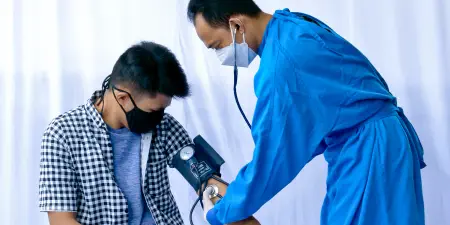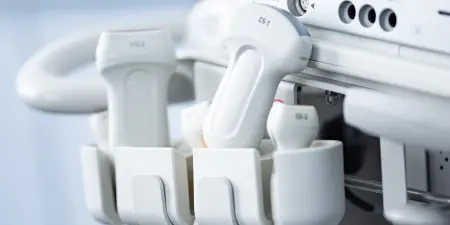Testicular Cancer

Testicular Cancer: An Overview
Testicular cancer rarely occurs in men, but when it does, it presents unique health challenges since it primarily affects young men aged 20-34 years. The diagnosis can have a devastating effect on the morale of young men, leading to worries about fertility, masculinity, and long-term health.
Nevertheless, it is crucial to recognise that cancer of the testicles has one of the highest cure rates of any cancer as long as it is identified and treated early.
In such scenarios, Dr. Aarthy, a highly skilled uro specialist, offers compassionate guidance and personalised treatment to help patients benefit from the right path of recovery. She has an impressive track record that boasts some of the highest survival rates in cancer care.
With Dr. Aarthy by your side, you can be confident that you will receive the best possible care in your wellness journey.
Testicular Cancer:
Causes & Symptoms
- The Causes
- The Symptoms
- History of undescended testicles at birth or Cryptorchidism.
- Family incidence of testicular cancer raises the risk.
- A prior history of cancer in one testicle puts the other one at risk.
- Inherited conditions like Klinefelter Syndrome.
- Abnormal testicular development impacting average testicle growth.
- HIV infection increases the risk of testicular cancer.
- Swollen testicles or painless lump within the testicles.
- Heavy feeling in the scrotum.
- Weight loss, unexplained fatigue, and general weakness.
- Swelling due to collection of fluid in the scrotum.
- Dull pain in the lower abdomen or groin area.
- Persistent lower back pain for advanced testicular cancer.
- Sudden change in testicle size where one becomes smaller or larger than the other.
Evaluation of Cancer of Testicles: Diagnostic Tests
Dr Aarthy’s systematic approach to treating testicular cancer commences with multiple tests to diagnose the condition and the stage of cancer. The methods include:
Treatment For Testicular Cancer: Available Options

Radical Orchiectomy
Excision of the affected testicle via an inguinal incision. This procedure is usually the first treatment for confirmed cases.
Retroperitoneal Lymph Node Dissection (RPLND)
Surgical extraction of lymph nodes located in the lower back of the abdomen. This procedure is especially crucial for specific types of testicular cancer.
Chemotherapy
A post-surgical treatment to eliminate the remaining cancer cells. Chemotherapy involves the BEP or the use of a combination of Bleomycin, Etoposide and Cisplatin.
Radiation Therapy
Targeted radiation therapy is especially successful in treating seminoma-type testicular cancers.
Testicular Prosthesis
Optional artificial implant designed to preserve a natural look following testicle removal.
Prioritise Your Testicular Health: Consult Today








